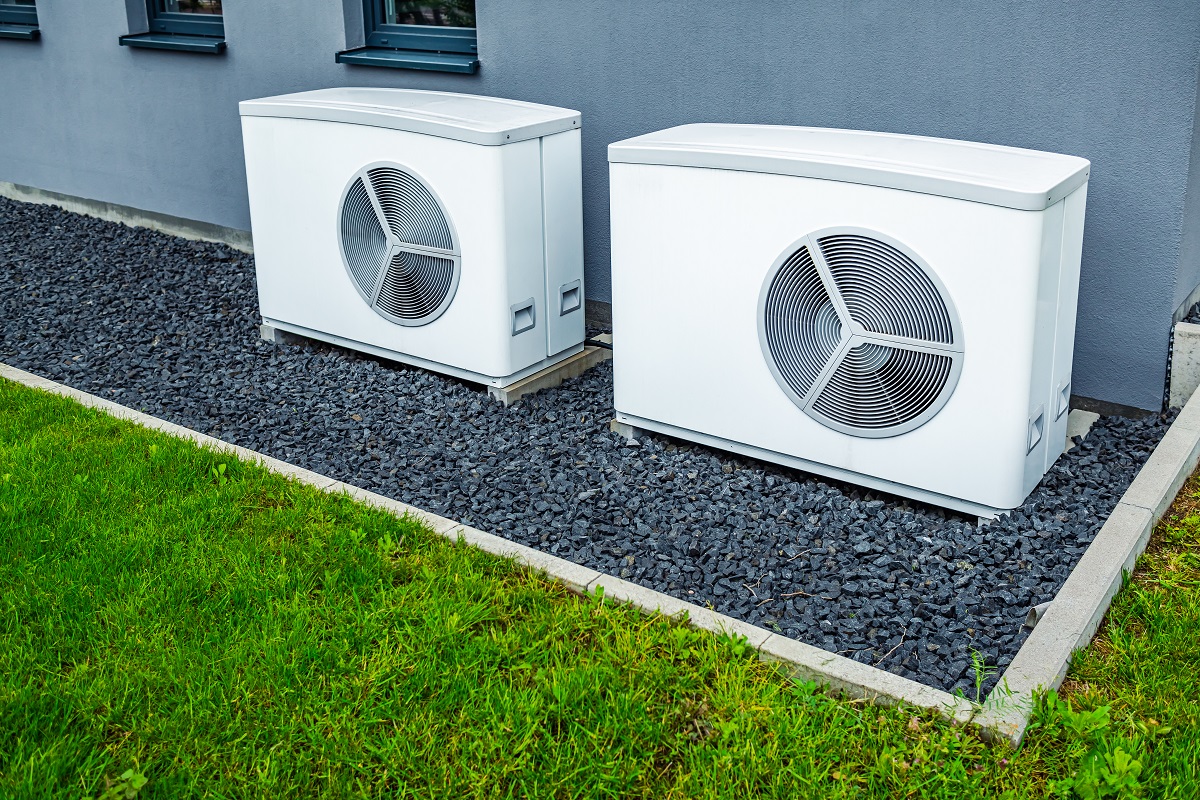As property owners seek more cost-effective and environmentally friendly heating solutions, heat pumps have become an increasingly popular choice for residential and commercial spaces alike. Whether you are in the process of building a new property or looking to upgrade your existing heating system with All Around Heating, Air & Solar Construction, understanding the benefits of heat pumps can help you make an informed decision to meet your unique needs.
Heat pumps are versatile and efficient systems that can provide both heating and cooling to spaces by transferring heat between indoor and outdoor environments. Using a refrigeration process, they can extract heat from the outdoor air, even during colder months, and transfer it inside to warm the space. This process is more energy-efficient than traditional furnace-based heating systems and reduces the property’s reliance on fossil fuels, making it a more sustainable option offered by All Around Heating, Air & Solar Construction.
Benefits of Heat Pump Systems
Heat pump systems offer numerous advantages over traditional heating solutions, making them an attractive option for property owners. Some of the key benefits include:
1. Energy Efficiency: Heat pumps transfer heat instead of generating it, making them highly energy-efficient. As a result, they require less electricity to operate, leading to lower energy bills and reduced carbon emissions.
2. Environmental Friendliness: Unlike traditional furnaces that burn fossil fuels, heat pumps use electricity to transfer heat. This significantly reduces the property’s carbon footprint and contributes to a healthier environment.
3. Dual-Function: Heat pumps can provide both heating and cooling through a single system, eliminating the need for separate air conditioning units. This dual-function capability simplifies installation and maintenance while also saving space.
4. Customization and Flexibility: Heat pumps come in various types and sizes, suitable for diverse property types and requirements. Property owners can opt for ductless or central systems based on their needs and preferences.
Heat Pump Options for Your Property
To better understand which heat pump system is right for your property, it is important to explore the various options available:
1. Air Source Heat Pumps: These systems extract heat from the outdoor air and transfer it indoors. They can be used in both heating and cooling modes, offering year-round climate control. Air source heat pumps can be further categorized into ductless mini-split systems and central systems.
2. Geothermal Heat Pumps: Also known as ground source heat pumps, these systems utilize the consistent temperature beneath the ground to provide heating and cooling. Geothermal heat pumps require the installation of a ground loop and offer enhanced energy efficiency compared to air source systems.
3. Absorption Heat Pumps: These systems are powered by natural gas, propane, or solar energy, making them a great option for properties located in areas with limited electricity access or high electricity costs. Absorption heat pumps use an absorption process involving heat exchangers to transfer heat between indoor and outdoor spaces.
Professional Installation and Maintenance
Heat pump systems require proper installation and regular maintenance to ensure efficient operation and an extended lifespan. Partnering with professional technicians can help property owners get the most out of their investment. Some key factors to consider are:
1. Correct Sizing: Expert technicians can assess your property’s heating and cooling requirements and recommend a heat pump system of the appropriate size. Proper sizing ensures that the system runs efficiently and maintains consistent indoor temperatures.
2. Installation Quality: Heat pumps require specialized knowledge and skills for proper installation. Working with experienced professionals guarantees that the system is installed correctly, avoiding performance issues and costly repairs down the road.
3. Timely Maintenance: Regular maintenance helps identify potential issues early, keeping the system running at peak efficiency. A professional technician can perform thorough inspections, tune-ups, and repairs to ensure optimal performance and longevity of the heat pump.
Heat Pumps in New Construction Projects
Incorporating heat pump technology into new construction projects offers multiple benefits. Some of the key advantages include:
1. Energy Savings: Heat pump systems can help property owners save on their energy bills from the start, thanks to their high efficiency.
2. Increased Property Value: A heat pump system can make your property more attractive to potential buyers or renters, as it demonstrates a commitment to energy efficiency and sustainability.
3. Elimination of Ductwork: In new construction projects, opting for ductless mini-split heat pumps eliminates the need to install ductwork, reducing construction costs and time.
Conclusion
Heat pump technology offers numerous benefits for residential and commercial properties, including energy efficiency, environmental friendliness, and cost savings. By understanding the various types of heat pump systems and partnering with professional technicians for installation and maintenance, property owners can enjoy the full potential of this versatile, efficient, and environmentally responsible heating solution.
If you’re considering a heat pump system for your property, trust our experts at All Around Heating, Air & Solar Construction to help you choose and maintain the perfect fit for your specific needs. Schedule a consultation with us today and experience the advantages of heat pump technology for yourself.


